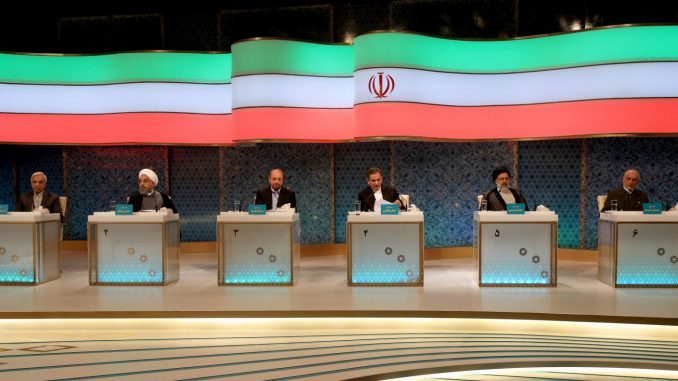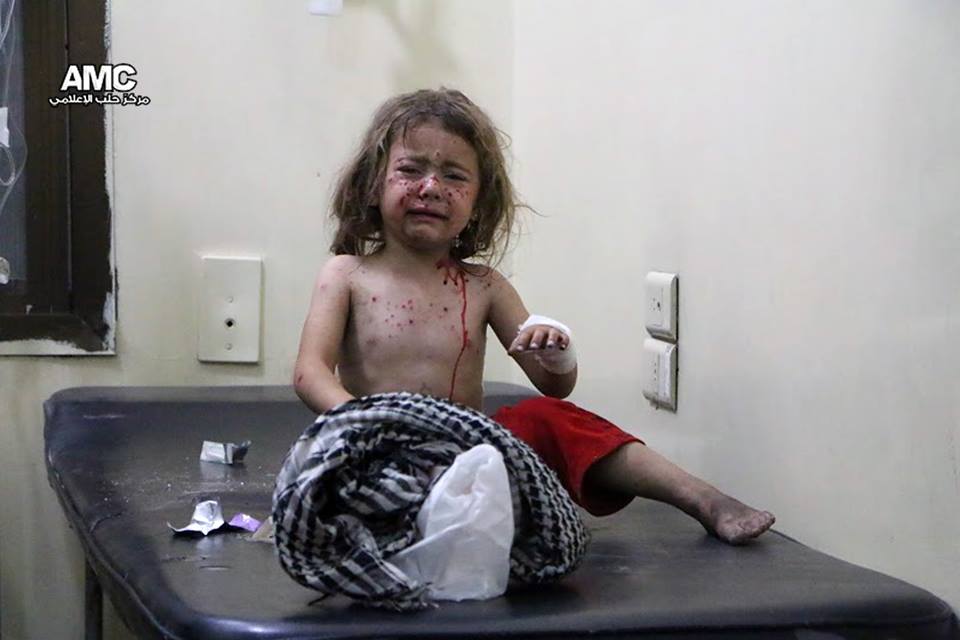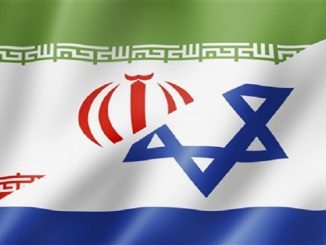
Iran’s six candidates for the presidential election met in their first live television debate on Friday, where they showed off their plans, and their chances of winning started to be clear.
Iran made a historic nuclear deal with P5+1 powers in 2015, in which Tehran agreed to amend its nuclear output in order to lift all nuclear-related economic sanctions, freeing up tens of billions of dollars in oil revenue and frozen assets.
After lifting the sanctions, Iranian president Hassan Rouhani visited Europe and made deals that worth billions of dollars. European companies started looking for investment opportunities in the growing Iranian market.
Rouhani won the presidency in 2013 with the backing of mainly of young people and women. He promised to bring Iran out of its international isolation and create a freer society.
But many ordinary Iranians have lost faith in him because he has not been able to improve the economy despite the lifting of sanctions in January last year under the nuclear deal.
In addition, Iran’s Supreme Leader Ali Khamenei and his hardline loyalists, have criticized Rouhani’s policy of rapprochement with the West, arguing the 2015 nuclear accord had not yielded the benefits he promised.
Doubts have been cast on whether Hassan Rouhani will be capable of pulling off a victory as he is facing escalating criticizing from his rivals, the hardliners, who have nominated various figured to run for the presidency.
The final list of the presidential candidates included six figures: Hassan Rouhani: Reformist and the current president, Ebrahim Raisi: Hardliner and conservative cleric, Mohammad Bagher Ghalibaf: Hardliner and former commander in Iran’s Revolutionary Guards, Eshagh Jahangiri: The current vice-president, Mostafa Mirsalim: Hardliner and currently a university professor, Mostafa Hashemitaba: Reformist, previous minister and vice president.
They met in their first live television debate on Friday, 28 April.
During the three-hour debate, Rouhani’s opponents sought to denigrate his economic record and said that the Islamic Republic would be harmed if he were re-elected on May 19.
Read More: Hardliners slam Rouhani over the economy in first election debate
Is Raisi still Rouhani’s strongest opponent?
Ebrahim Raisi, the influential Shi’ite cleric, was considered Rouhani’s strongest rival and enjoyed the support of Supreme Leader Ayatollah Ali Khamenei. Many see his as a potential successor to Khamenei
However, he seemed uncertain in the debate and his poor performance didn’t prove him as a strong candidate, according to analysts.
He spoke broadly about boosting cash subsidies for the poor, attempting to harness the populist message of former president Mahmoud Ahmadinejad — but with much less charisma.
“The gap between rich and poor has widened in Iran…Monthly cash handouts to poor people should be tripled,” Raisi said.
Raisi “clearly decided to stay calm. … He avoided any major confrontation with other candidates,” said Reza H. Akbari, program manager at the Institute for War and Peace Reporting in Washington, where he researches Iranian politics.
“Regardless of the question, Raisi hammered the key populist policies of alleviating poverty, reducing unemployment and providing government housing,” he said.
But, according to Arash Azizi, a Ph.D. student, and writer at IranWire, a portal for Iranian journalists abroad, Raisi “doesn’t seem to have what it takes to perform well in the Islamic Republic’s tricky political arena.
“He didn’t offer a compelling a coherent alternative to Rouhani,” Azizi wrote. Raisi “was the evening’s main loser, and this left open the question of who will now be the main challenger to Rouhani’s candidacy.”
It was clear during the debate whom Rouhani saw as his primary rival — and it wasn’t Raisi, despite the latter’s backing from the religious establishment.
Along with his first vice president, Jahangiri, Rouhani went on the offensive against Ghalibaf, the conservative mayor of Tehran, who has been under heavy criticism for his policy in managing Tehran and the corruption files he was accused of.
Ghalibaf and the harsh debate with Rouhani
Ghalibaf lost to Rouhani in the last election, and he has been accused of corruption during his time as mayor. But Ghalibaf showed himself to be an impressive debater and, also tapping into populist rhetoric, accused the Rouhani administration of “not living among the people.”
Ghalibaf hammered Rouhani and his confidant and first vice-president, Eshaq Jahangiri, with both sides trading accusations of “lies” and making “insincere” comments.
Ghalibaf berated Rouhani for failing to make good on a promise “to create four million jobs”, saying unemployment was Iran’s “biggest problem”.
“Compared to Raisi, Ghalibaf is a better-known political figure and technocrat with a long history of public service,” Akbari said. “So he has an established support base.”
“Ghalibaf is an articulate and eloquent speaker and very knowledgeable about the nuances of public policy,” he said. “This makes him a strong presidential contender.”
But Jahangiri confronted Ghalibaf on everything from his past as Iran’s police chief to poor garbage collection in Tehran.
Ghalibaf also accused Rouhani and his government of “bad management” and of “repeatedly saying that the government does not have the means” to solve the Islamic republic’s problems.
Ghalibaf said the vice-president threw his hat into the ring only to back up Rouhani and help him in the debates.
Jahangiri dismissed the attacks against himself and accused Ghalibaf of running the capital “with the mentality of a military man”.
“It’s a slaughter,” tweeted Mohammad Ali Shabani, editor of Iran coverage at Al-Monitor, an online news portal focused on the Middle East. “Jahangiri now attacking Ghalibaf over Tehran trash collection.”
“Mr. Ghalibaf is the mayor of Tehran,” Jahangiri said during the debate, but “he speaks like he is in charge of the whole country.”
Jahangiri’s performance drew praise among Iranians on social media Friday, including a computer-altered photograph showing the vice president as Superman or a gangster smoking a joint and wearing sunglasses. He was widely seen as the winner of the debate.
However, according to several analysts, Jahangiri is expected to pull out of the race after the three live television debates in order to support Rouhani.
One line stood out among Iran watchers in particular, where Rouhani referenced his government’s moves to open Iran up to the world.
“If it wasn’t for this government,” Rouhani said, “even our friends here today couldn’t have campaigned on the Internet.”



